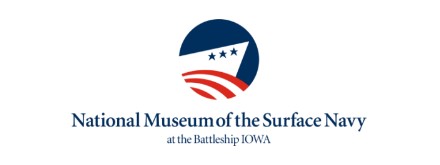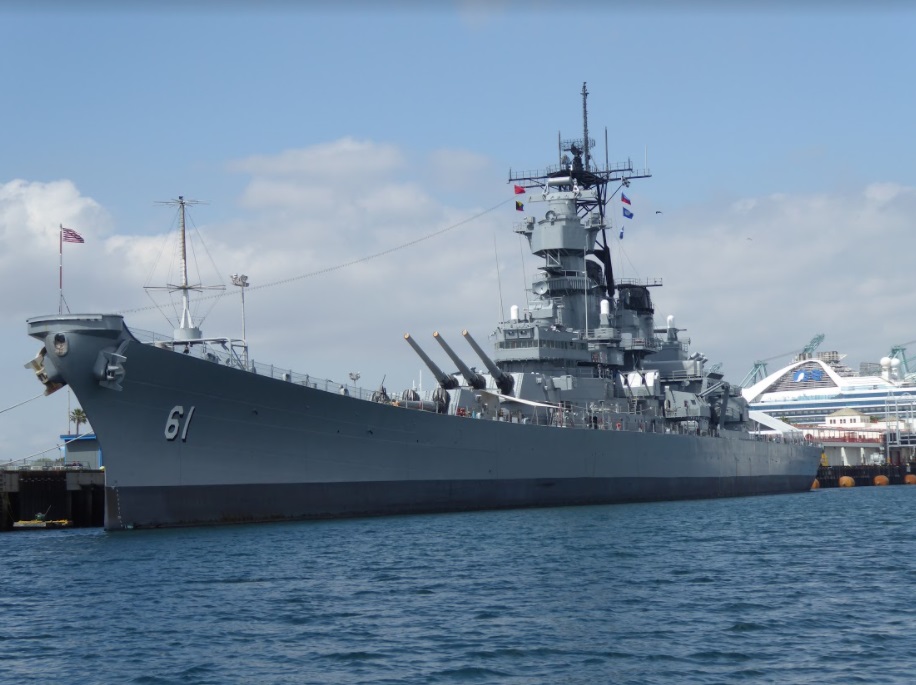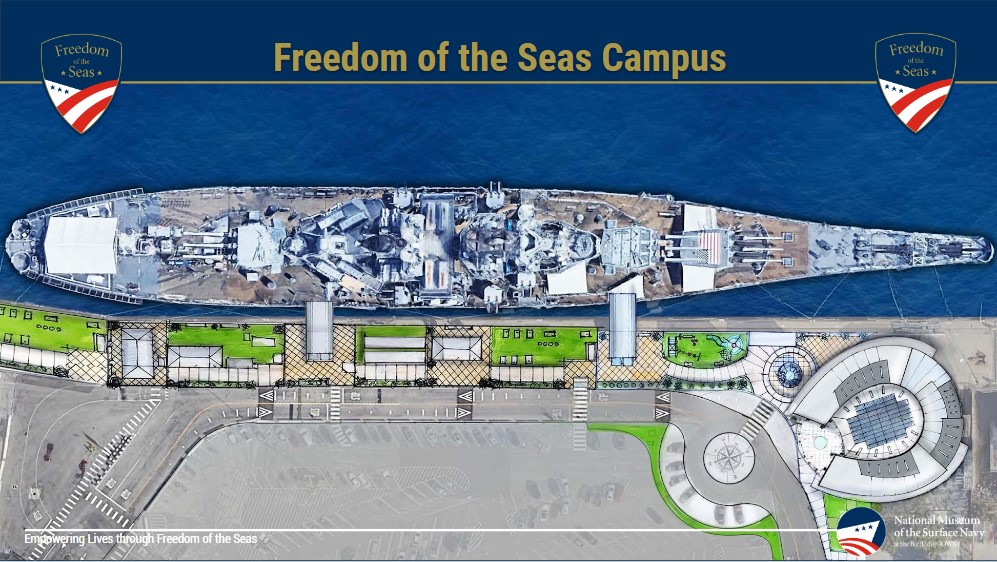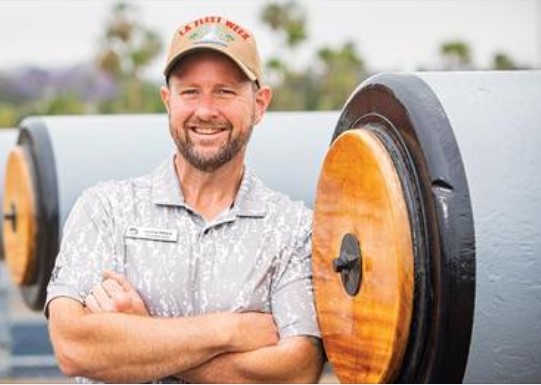
A Message from the CEO
When the Battleship IOWA docked at the Port of Los Angeles in 2012, a prominent elected leader commented, “All of this to kill people.” Without hesitation, I responded, “No, all of this to preserve peace.” This exchange reflects a common misconception which endangers the delicate balance of the freedoms we hold dear today, and into the future.
The coffee we savor, the products we purchase, the internet and streaming services we enjoy—all arrive at our homes because the US Navy and Surface Navy defend the age-old principle of freedom of the seas. This tenet guarantees open access to the oceans for every nation and, for over 80 years, our economic stability and maritime rights have remained intact.
However, complacency has set in.
A collective anticipation of prosperity has resulted in the under-recognition of the Navy’s crucial role in our nation. This has led to a significant military recruiting deficit, a maritime industrial complex ill-prepared to support a first-world nation, and only 18.4% of elected officials having military service. Even more startling is that just 7% of the American population has served in the military, leaving 93% largely detached from the forces that protect them.
Major world powers perceive a vulnerability and are positioning themselves to control the global oceans. The principle of freedom of the seas, and our very way of life, is at risk.
This is our rationale for launching the Freedom of the Seas Campus. A facility that connects the nation through shared experiences and knowledge, set against the backdrop of the busiest port complex in the Western Hemisphere. This campus will showcase the pivotal actions of our Navy and Surface Navy, from high-stakes operations like the rescue of Captain Phillips off the coast of Africa, to humanitarian response missions in the wake of the Fukushima tsunami and Turkey earthquake. It aims to unify individuals from diverse backgrounds, building bridges of understanding that can reshape the trajectory of our nation’s Navy, Surface Navy, and maritime complex.
The Freedom of the Seas Campus will build upon our existing initiatives, offering increased capacity and resources to position us as the nation’s epicenter for maritime understanding. Our programs aim to equip individuals with knowledge and champion the future of our nation’s maritime-centric efforts.
These objectives will be realized with the Battleship IOWA as the focal point, complemented by the addition of the state-of-the-art National Museum of the Surface Navy, a maritime-focused community park, and a multi-use pavilion specifically designed for hosting conversations and gatherings of national importance.
Much like our relentless efforts to save the Battleship IOWA from being scrapped, we believe that failure is not an option. With your support, we can secure our nation’s future by equipping Americans with knowledge and fostering unity. We invite you to be part of enhancing our nation’s future by supporting the Freedom of the Seas Campus.

Jonathan Williams
President & CEO | Pacific Battleship Center
Navy Distinguished Public Service Awardee
The Need for the Freedom of the Seas Campus
Understanding the Problem
In recent years, the maritime industry and our Navy have been facing numerous challenges—diminishing awareness, dwindling recruitment, outdated infrastructure, and a rapidly evolving geopolitical landscape that threatens the freedom of the seas. As the world becomes more interconnected, the importance of the maritime domain in global trade, security, and socio-economic development has only grown. Yet, many remain unaware of the intricate dance that keeps our oceans free and thriving.
The Consequences of Inaction
If left unaddressed, these challenges pose dire consequences:
- Economic Impact: Our oceans are essential trade routes, facilitating the movement of goods, services, and energy. Restricting these waters could lead to economic downturns, inflation, and job losses.
- Food Security: The oceans are a vital source of sustenance. Their health directly impacts our food chains, affecting countless communities reliant on the seas for their livelihoods and nourishment.
- Global Security: Control over sea routes has been, historically, a significant point of contention among nations. In an age of increasing competition, ensuring free and open access to the world’s oceans is more crucial than ever to prevent conflicts.
- Humanitarian Assistance: Oceans have often been the medium for delivering urgent humanitarian aid to countries hit by disasters. An open and accessible maritime domain ensures that help reaches those in need swiftly, without bureaucratic or geopolitical impediments. This not only saves lives but also fosters global solidarity and cooperation.
- Environmental Integrity: The health of our oceans is paramount. Beyond their role in commerce, seas play a critical role in regulating the planet’s climate and supporting a vast array of biodiversity. As the threats of pollution, overfishing, and climate change intensify, the Freedom of the Seas Campus becomes crucial in promoting responsible stewardship and fostering research to protect and restore our oceans for future generations.
Addressing the Urgency: The Pivotal Role of the Freedom of the Seas Campus
We stand at a crucial juncture in our maritime history. The oceans, with their pivotal roles in the economy, global security, environment, and the very sustenance of life, face threats that demand immediate and informed action. The disconnection between the significance of our seas and public awareness is a chasm we can no longer afford to overlook.
The Freedom of the Seas Campus isn’t just an institution; it’s a mission-driven response to these pressing challenges. By bridging the knowledge gap and shining a light on the myriad complexities of our maritime domain, we aim to shape public perception, drive informed policy-making, and foster a generation of stewards committed to preserving the integrity of our oceans.
In our hands, we hold the potential to safeguard not just our seas but the very ideals of freedom, collaboration, and environmental stewardship that they represent. Now, more than ever, the world needs the Freedom of the Seas Campus. With your support, we can create a ripple effect of awareness, action, and lasting change.
YOUR MUSEUM
This museum is an effort led by the Pacific Battleship Center, a 501(c)3 non-profit.
How can you help?
WANT TO RECEIVE UPDATES?
All you need to do is become a Plank Owner for FREE and receive the following benefits:
- Regular e-updates on the museum.
- Memorialize your service or a loved one's in our Quarterdeck of Honor.
- A commemorative Plank Owner certificate customized with your name.
- Donate and receive even more!
Already a Plank Owner? Login here.
ADDRESS / PHONE
Pacific Battleship Center dba National Museum of the Surface Navy
250 S. Harbor Blvd.
San Pedro, CA 90731
Phone: 877-446-9261 ext. 747
Pacific Battleship Center is a highly-rated 501(c)(3) non-profit organization based in Los Angeles, CA. Currently the organization operates the Battleship IOWA Museum as a top 5 attraction in Southern California.
Click here for more information.


